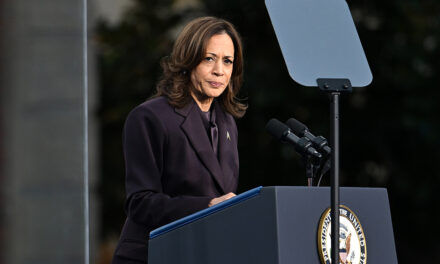We support our Publishers and Content Creators. You can view this story on their website by CLICKING HERE.
PHARMA HELICOPTER MONEY: Donations to senators from Big Pharma could complicate RFK Jr.’s path to HHS Secretary
The news that President-elect Donald Trump will be nominating Robert F. Kennedy, Jr. as Health and Human Services Secretary was welcomed by the countless Americans who are tired of the hold pharmaceutical and food companies have on government agencies. His “Make America Healthy Again” approach could do a lot for public health – but the corporate interests that have the most to lose could stop him from taking on the role.
Kennedy’s confirmation hearings will be held in January, and although the Senate Finance Committee will boast a Republican majority once Trump takes over, their close ties to the pharmaceutical industry could prove to be a big obstacle. After all, the pharmaceutical lobby is considered one of the strongest ones in Washington, D.C.
According to The Federalist, the members sitting on the U.S. Senate Finance Committee who will vote first on Kennedy’s nomination have raked in hundreds of thousands of dollars’ worth of contributions from pharmaceutical companies.
Overall, The Federalist concluded that pharmaceutical companies have contributed more than $6.7 million to various Senate Finance Committee members from 2019 to 2024.
They note: “Republicans overall brought in nearly $5 million from the pharmaceutical industry across 13 members while Democrats raised more than $1.7 million across 9.”
One of the top recipients is senator Thom Tillis (R-North Carolina), who has brought in around $680,000. Senator Bill Cassidy (R-Louisiana) has brought in more than $667,000, while Senator Tim Scott (R-South Carolina) has received nearly $564,000.
When it comes to Democrat committee members, the top recipient is Senator Catherine Cortez Masto of Nevada with almost $460,000 during the last five years, followed by Senators Maggie Hassan of New Hampshire and Ron Wyden of Oregon with $360,000 and $352,000 respectively.
The Federalist pointed out that receiving these donations does not automatically mean that a senator will be compromised and will always side with Big Pharma. They cited the example of Senator Ron Johnson, who has received more than $124,000 worth of donations from the pharmaceutical industry during the last five years yet held a series of roundtable discussions that were very critical of Big Pharma.
For example, he hosted a Senate roundtable in September about the nation’s chronic disease epidemic and even invited Kennedy to speak there. More recently, he has demanded that public health agencies supply unredacted documents pertaining to the safety and development of COVID-19 vaccines.
Kennedy has already attracted a lot of support
After Thanksgiving, Kennedy will reportedly be holding discussions with various figures on Capitol Hill as he tries to get enough votes for a confirmation. A few key Republicans on the Senate Finance Committee appear to be on his side already. However, Forbes reports that even if all of the Democrat members vote against him, there is room for him to lose as many as three votes from Republicans on the committee and still make it to the full Senate for the confirmation vote.
We also shouldn’t discount the possibility that some of the more health-conscious Democrats could vote in favor of Kennedy after all.
Government Accountability Institute Director Of Research Seamus Bruner said: “Kennedy’s best chance at confirmation may entail quietly persuading as many health-minded Democrats as he can to vote in his favor to counteract any Republicans that vote against him.”
He added that the Make America Healthy Again plan has already earned “broad, bipartisan populist support.”
A YouGov poll shows that Kennedy is a less controversial choice than some of Trump’s other picks, which means he could well have a much easier path to confirmation.
Sources for this article include:

 Conservative
Conservative  Search
Search Trending
Trending Current News
Current News 





